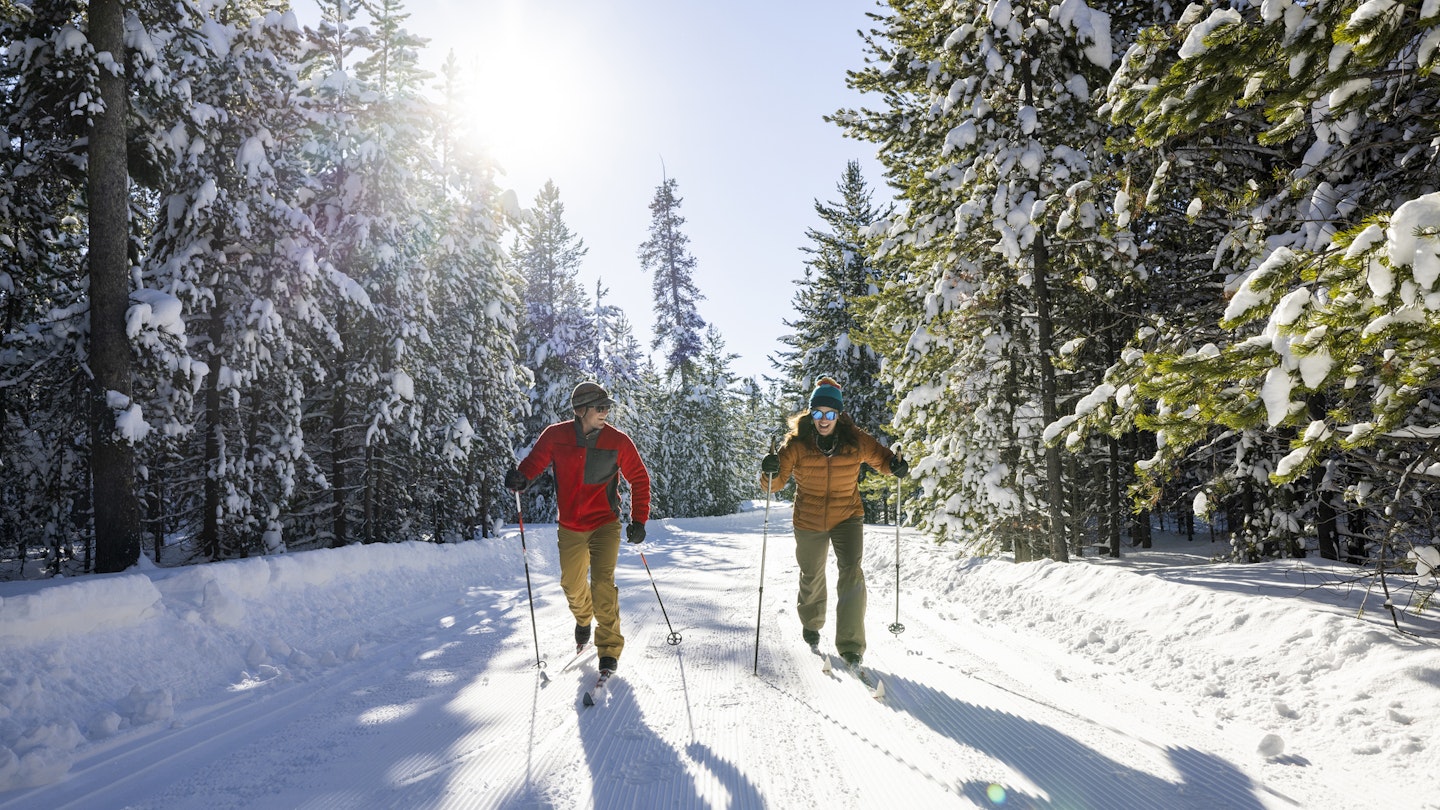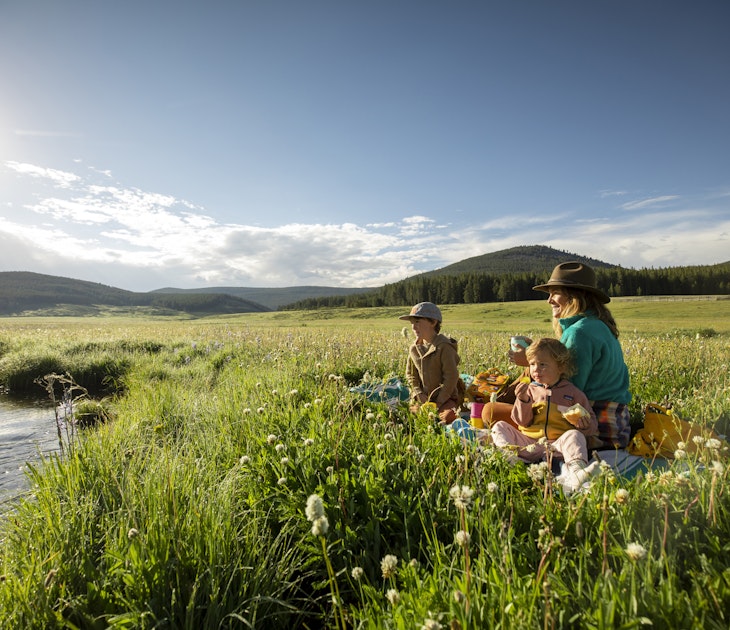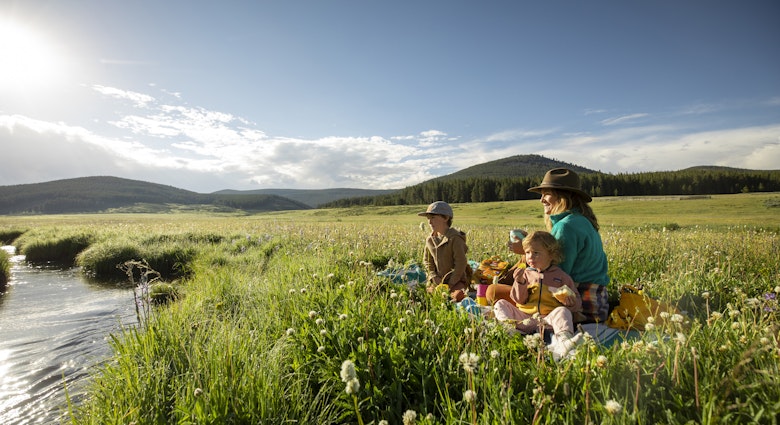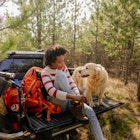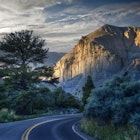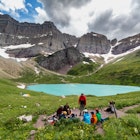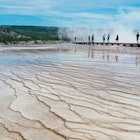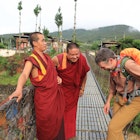Public lands define many Montana vacations, offering a robust selection of free outdoor activities throughout the year.
The state maintains roughly 17 million acres of national forest within its borders, and if you’re into adventuring outside, it’s easy to explore Montana on a budget. The biggest expense can be simply transporting yourself to the Treasure State.
Between summer-spanning free events and money saved on lodging and groceries, extending the vacation budget is easy to do. Here are our top tips, along with a guide to daily costs, for a cost-effective trip to Montana.

Daily costs
- Campsite: $0–35
- Hostel room: $30–60 (dorm bed)
- Basic room for two: $100–150
- Self-catering apartment (including Airbnb): from $130
- September 2023 Average Gas Price: $3.976 / gallon (regular)
- Drip coffee: $2.50–3.50
- Breakfast sandwich: $7–8
- Fast-bite lunch: $10–12
- Dinner for two: $60–90
- IPA at a brewery: $6–7
Average daily cost (3 meals + nighty rate + activity): $40–200
1. The cheapest airport is probably the one closest to your destination
Montana is immense, taking at least 11 hours to drive across the state. And because it’s not a common connection for other flights, it’s not always cheap or easy to fly into the Treasure State. But if you find affordable flights, they’re probably landing at Bozeman Yellowstone International, the state’s busiest airport, or the expanding Missoula Montana Airport.
But if you want to explore other parts of the state, any money you saved by flying into Bozeman or Missoula could be negated by travel costs. If heading to Glacier, try looking for flights to Glacier International Airport in Kalispell. And for those wanting to check out places like Fort Peck Lake or Makoshika State Park in eastern Montana, Billings Logan International Airport is a better starting point.
2. Attend free events throughout the summer
Every season adds to the beautiful landscape in Montana, but the summer makes everything shine. And Montana’s cities and towns know how to celebrate the nice weather with family-friendly and free events almost every day of the week.
Hang around Caras Park on the Clark Fork River in Missoula any day during summer, and you might catch live music on Wednesday afternoons or Thursday evenings as part of the Out to Lunch or Downtown ToNight series. This beautiful community space is also home to the Saturday Farmers' Market and ground central for First Friday celebrations every month. Attending these events is free, although you'll need to buy food and drinks.
3. Travel during Montana’s “off-seasons”
Scenic landscapes don’t go dormant in Montana, but there is an “off-season” where you’ll find better hotel rates and cheaper flights. Spring skiing and wildflower treks define this slow time between March through early May, with a chance of daytime showers and low overnight temps. Cloudy weather and the first hints of snow define a similar stretch between mid-September through October, alongside crisp autumn foliage and a good excuse for a campfire.
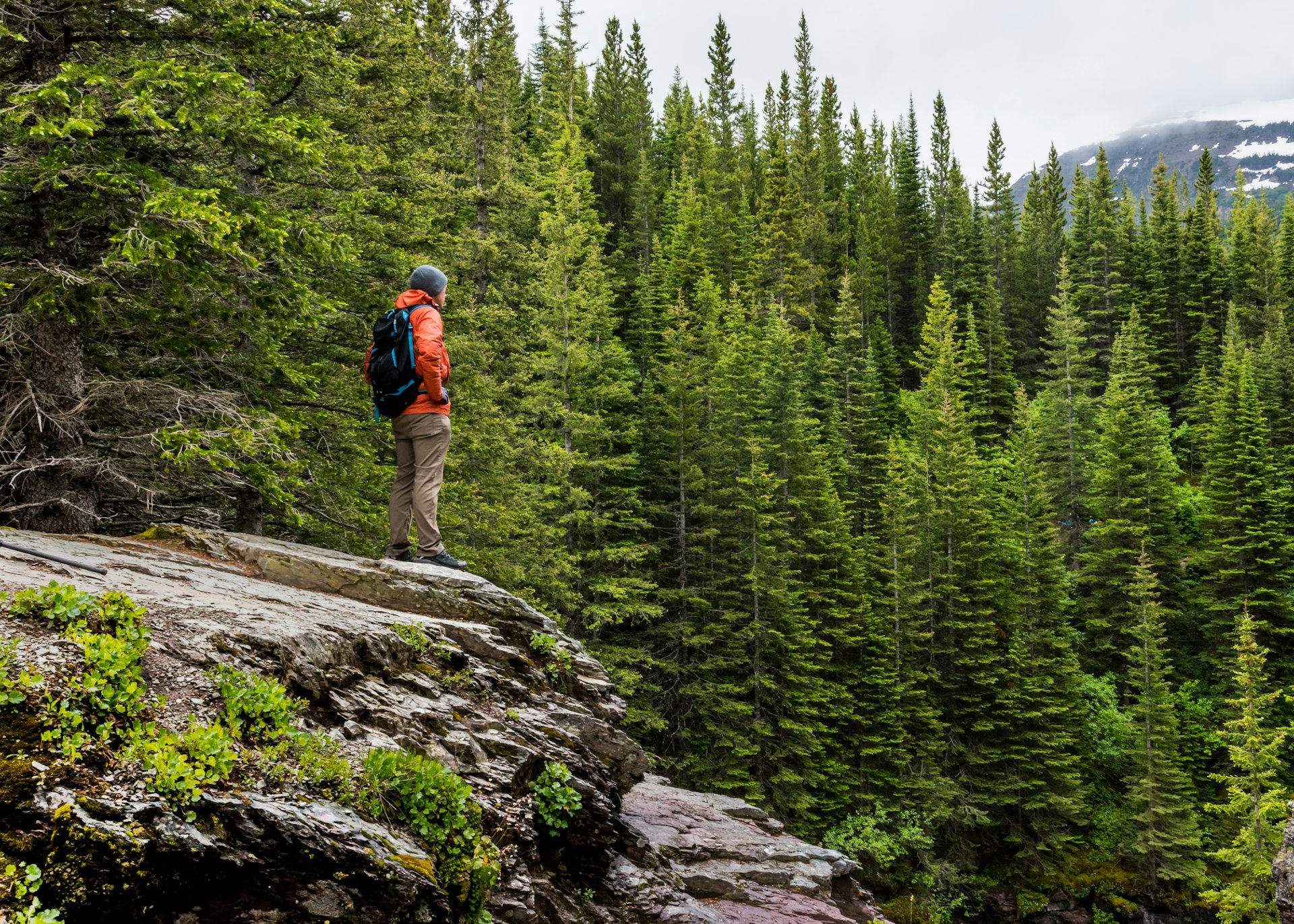
4. Go for a hike
You’ll notice that most people you meet in Montana always look ready to go on a hike, and that’s probably because they are. There are hiking trailheads around every corner and there's a community emphasis on protecting the wild lands they traverse. And hiking, whether a slow ramble next to the river or an all-day excursion to a mountaintop, is a way of life in Montana for several reasons, including its ease of access and affordability.
An entire summer season would be well spent hiking the public lands surrounding Bozeman free of charge, courtesy of Custer Gallatin National Forest. The College M Hiking Trail is an excellent place to start, seen prominently throughout town and part of the Main Street to the Mountains network. And less than 60 miles south, Beehive Basin, beneath the looming Lone Peak, belongs on everyone’s hiking bucket list.
5. Fuel up at grocery stores and farmers markets
Montana has no sales tax, making it easier to stick to a budget when shopping at grocery stores. And shopping at an Albertsons or WinCo Foods is an excellent way to save money on vacation. Non-perishable items like trail mix and canned soup go a long way on a Montana camping excursion, while deli bars and made-to-eat options offer reasonably affordable options on the fly.
Farmers markets also occur throughout the extended summer season in almost every city. Plan a vacation around one of these community events and add some fresh produce to the diet. Food truck vendors also line the perimeters of these and other summer events with more affordable fares than traditional sit-down restaurants.
6. You might not need a car for your whole trip (or at all)
Don’t rent a car for the days you don’t need one. Public transportation and ride-shares are available from all airports with a short trip into their respective cities, all endowed with buses, shuttles, and sidewalk rentals like bikes and scooters. Instead of paying for a car rental to sit in the driveway most of the day, consider only renting for days with planned out-of-town explorations.
7. Camp the night away
One of the best ways to save money on a Montana vacation is by camping under the stars. Designated campgrounds punctuate the national forests, national parks and state parks throughout Montana, featuring campsites for tents and RVs, always at a fraction of a hotel room cost. Just be sure to book months ahead for popular sites, such as anywhere in Glacier National Park.
Free primitive camping is also available throughout the vast acreage of Montana’s national forests. Primitive sites typically comprise a pull-out from a Forest Service road with zero amenities like running water or restrooms. Aim to camp at an already established pull-out, ie where someone else has camped before, and follow all tenets of Leave No Trace while free camping in Montana’s national forests.
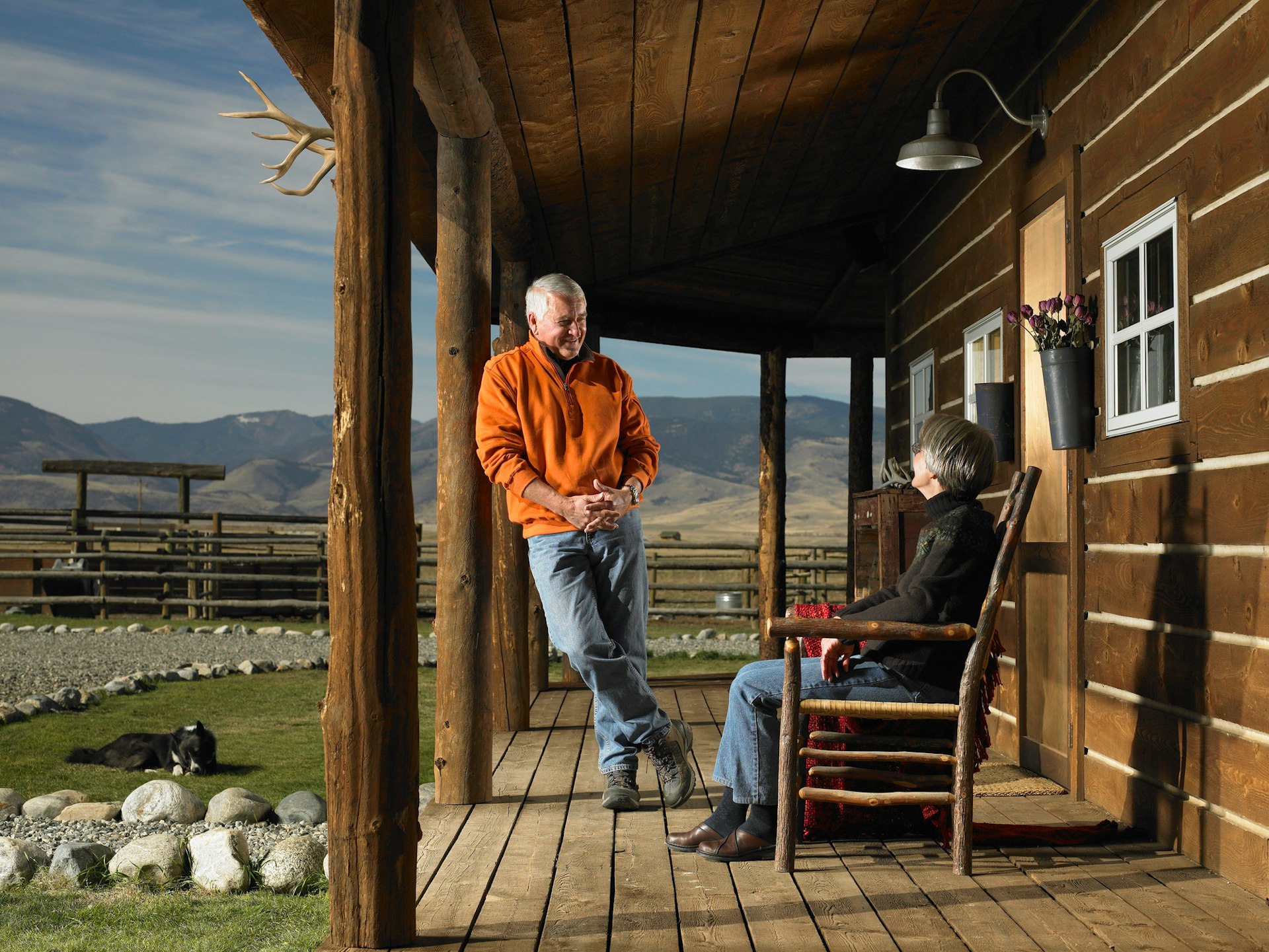
8. Stay in a Forest Service cabin
If snoozing in a tent doesn’t resonate as a good night’s sleep, there are still plenty of options to sleep with four walls and a roof and save some money. The US Forest Service maintains approximately 100 cabins, lookouts and guard stations throughout the state, like Crystal Lake Cabin and Thompson Guard Station in Helena-Lewis and Clark National Forest.
Recreation cabins range from $20 a night for the one-room Moose Lake Cabin near Georgetown Lake to the six-person Meyers Creek Cabin going for $90 a night in Custer-Gallatin National Forest. Amenities vary widely between each place to stay, and some require a 4WD vehicle to access or a lengthy hike, bike ride or even backcountry ski.
9. Bunk up at a hostel
Hostels aren’t abundant in Montana, though some of the state’s biggest adventure basecamps offer these economical solutions. Check out the Treasure State Hostel in Bozeman for bunk beds and private rooms, and likewise for the Shady Spruce Hostel in Missoula. And like any hostel experience, don’t forget to pack earplugs and a sleep mask, and open yourself to meeting other travelers.
North Fork Hostel & Square Peg Ranch has offered dormitory rooms near Glacier National Park for over 40 years. This picturesque facility near Polebridge also provides private rooms, satellite cabins and camping options alongside charming communal areas like a book-strewn living room and self-serve kitchen facilities. Reservations are required.
10. Score yourself a ski deal come winter
Montana should be on your radar for a ski vacation. Enormous acreage and heavy snowfall complement the affordable lift tickets and general lack of crowds. Expect a daily lift ticket for under $100 at all Montana ski spots, except for one, but Big Sky Resort is worth the heftier price tag.
And many Montana ski resorts, including Big Sky, offer discounts for things like advance online purchasing and additional deals like hotel packages or promotional events. But perhaps none are as liberal as Lookout Pass, straddling two timezones and the Montana/Idaho border, with things like Birthday Passes, Toyota Days, and Bring-a-Friend Thursdays.
